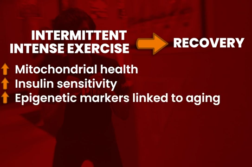SAN DIEGO, Calif. (Ivanhoe Newswire) – Genetic testing looks at changes in a person’s DNA. With a simple test, researchers can find out if you have a genetic condition and determine your chances of developing or passing on deadly diseases, such as breast, ovarian and colon cancers, cystic fibrosis, even heart disease. But these tests can be costly and some people can’t afford them. Now, the move is on to make genetic testing accessible to everyone.
Genetic testing – a simple blood draw or saliva sample – can identify opportunities for prevention, single out the best clinical trials, and improve treatment outcomes.
“We actually recognize that it’s going to be the most cost-effective care as well,” explains Chair of the Center for Precision Medicine at City of Hope, Stephen Gruber, MD.
A test can cost hundreds of dollars and is sometimes not covered by insurance. Now, City of Hope is one of the first cancer centers in the world to offer free genetic testing to every single patient, and possibly their immediate families.
“Someone I recently spoke to who was identified to have a genetic change that increased her risk for breast and ovarian cancer, and we got those results in just before she was about to start chemotherapy, and it actually changed things for her, and we were able to offer her a more appropriate and better line of therapy,” mentions Genetic Counselor Manager at City of Hope, Bita Nehoray, MS, CGC.
The panel tests 189 genes related to the risk of cancer and other inherited diseases.
Nehoray adds, “It’s been a tremendous game changer, as it relates to prevention in families, but also in really personalizing the most appropriate treatment plan.”
Taking part in the genetic testing is completely free to the patients. City of Hope will soon begin offering the INSPIRE study testing nationwide in their locations in Los Angeles, Atlanta, Chicago, and Phoenix.
Contributors to this news report include: Marsha Lewis, Producer; Matt Goldschmidt, Videographer; Roque Correa, Editor.
To receive a free weekly e-mail on medical breakthroughs from Ivanhoe, sign up at: http://www.ivanhoe.com/ftk
MEDICAL BREAKTHROUGHS
RESEARCH SUMMARY
TITLE: EQUALITY IN HEALTHCARE: GENETIC TESTING FOR EVERYONE?
REPORT: MB #5391
BACKGROUND: Genetic testing is becoming increasingly important in the diagnosis, treatment, and prevention of various diseases. It involves analyzing an individual’s DNA to identify genetic variations or mutations that may predispose them to certain health conditions. Direct-to-consumer genetic testing has gained popularity, with more individuals purchasing tests for ancestry, health risks, and other genetic traits. It is widely used in clinical settings for diagnosing inherited disorders, guiding cancer treatment, and assessing risks for complex diseases such as heart disease, diabetes, and Alzheimer’s and plays a key role in precision medicine by allowing healthcare providers to tailor treatments based on an individual’s genetic profile. The global genetic testing market is expected to grow significantly over the next decade, with an estimated compound annual growth rate of over 10 percent. The range of conditions for which genetic testing is available continues to expand, including rare diseases, pharmacogenomics and nutrigenomics.
https://www.cdc.gov/genomics/gtesting/genetic_testing.htm
DIAGNOSING: Diagnosing genetic conditions through genetic testing involves analyzing an individual’s DNA, genes, or chromosomes to identify variations, mutations, or abnormalities that may predispose them to certain health conditions. A healthcare provider or genetic counselor takes a detailed medical history from the patient, including information about their health, symptoms, and past medical events. They will also collect a detailed family history, looking for patterns of disease or conditions that may indicate an inherited genetic disorder. Genetic counseling is often provided to help patients understand the purpose, potential outcomes, risks, and benefits of genetic testing. Counselors can guide patients in making informed decisions about whether to undergo testing. The main types of genetic tests are molecular genetic tests, chromosomal genetic tests, biochemical genetic tests, and whole exome or genome sequencing.
(Sources: https://www.cdc.gov/genomics/gtesting/genetic_testing.htm
https://medlineplus.gov/genetics/understanding/testing/types/
NEW TECHNOLOGY: New innovations called CRISPR/Cas systems and small interfering ribonucleic acid are allowing for an understanding and ability to modify, suppress, and detect organisms at the molecular level. These new technologies will allow for a faster, cheaper, and more accurate than older tools understanding of genetic testing. They will also allow scientists and doctors to target more specific species, lineages, and genetics.
FOR MORE INFORMATION ON THIS REPORT, PLEASE CONTACT:
Zen Logsdon
If this story or any other Ivanhoe story has impacted your life or prompted you or someone you know to seek or change treatments, please let us know by contacting Marjorie Bekaert Thomas at mthomas@ivanhoe.com




